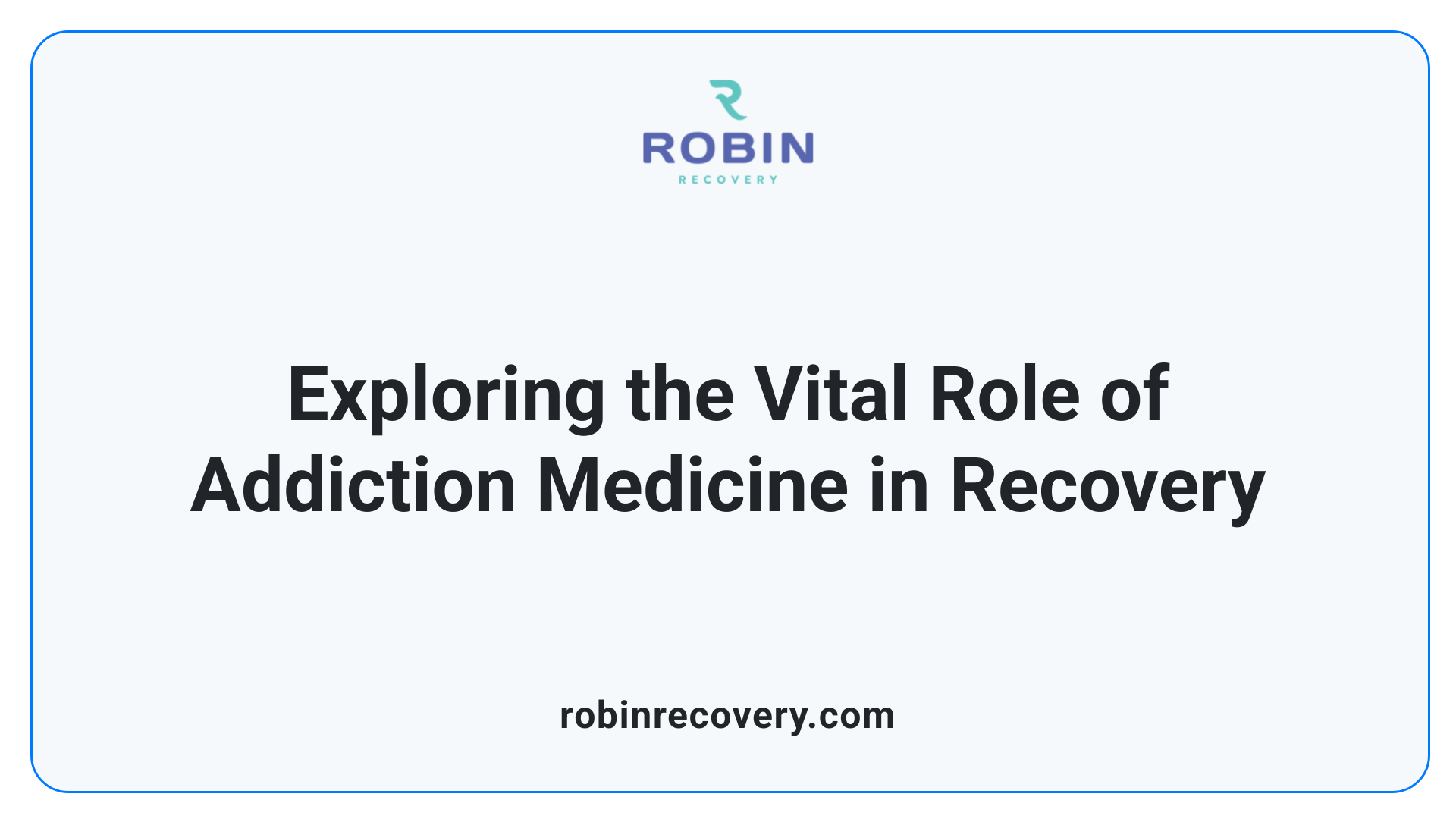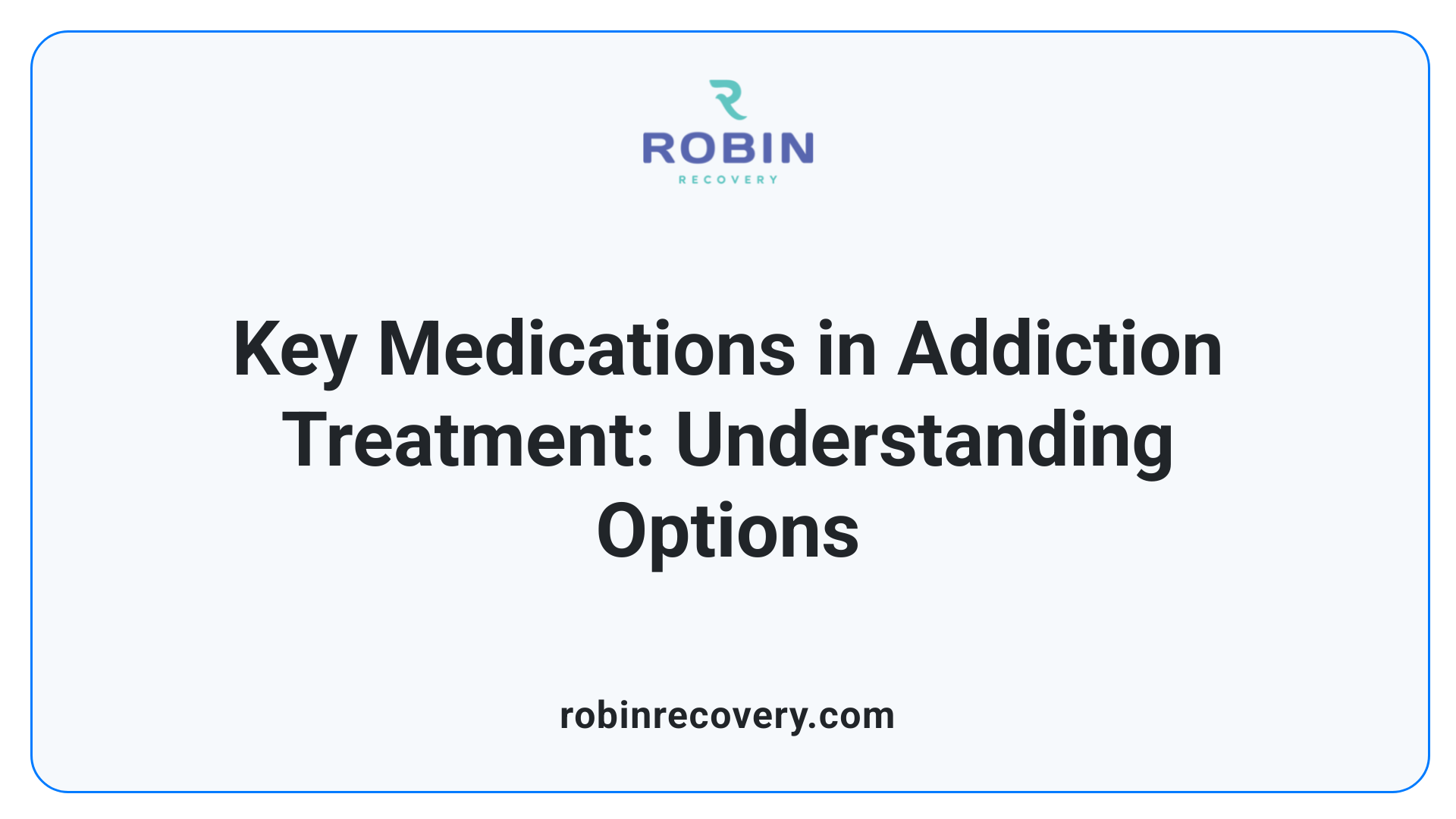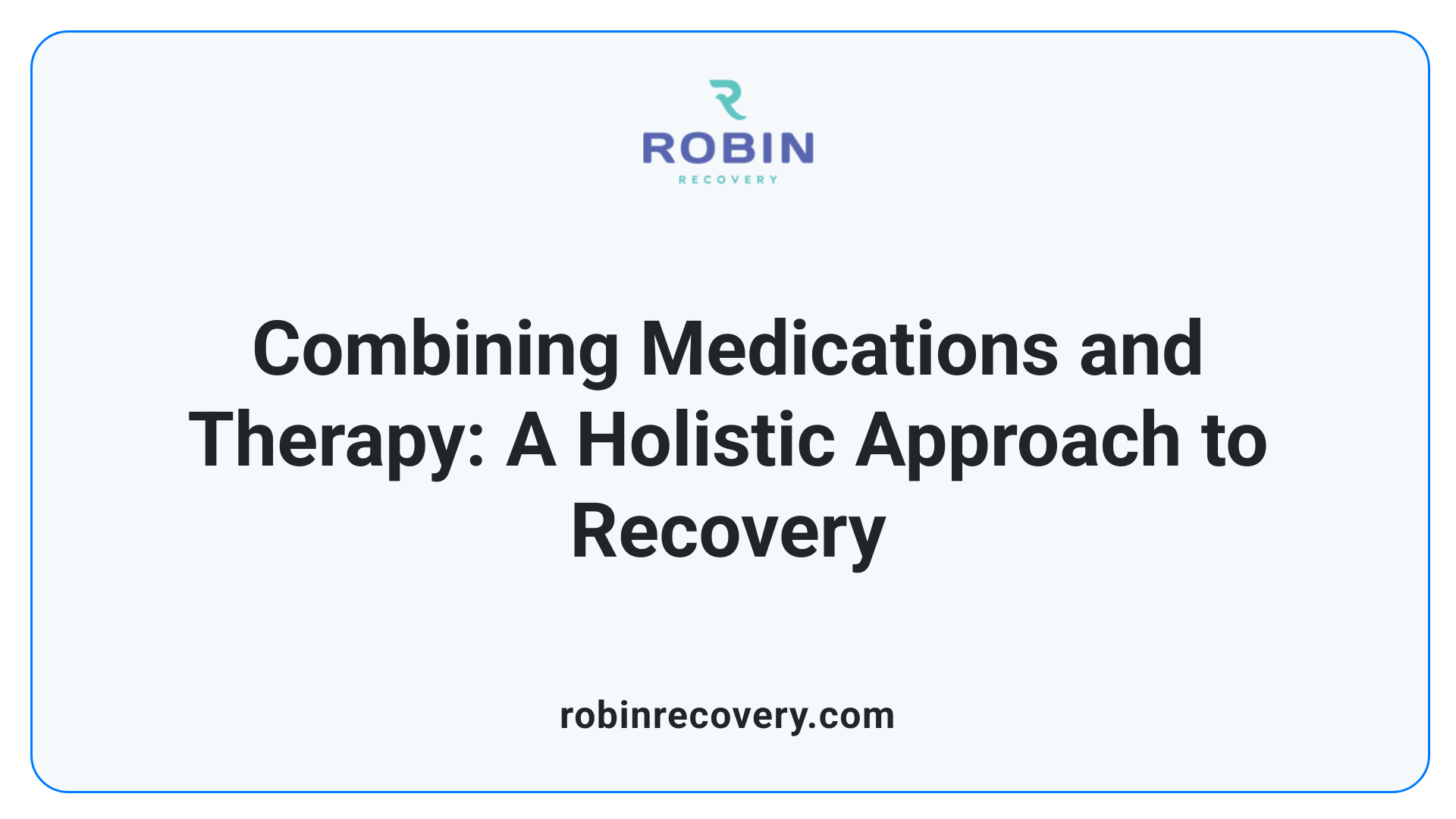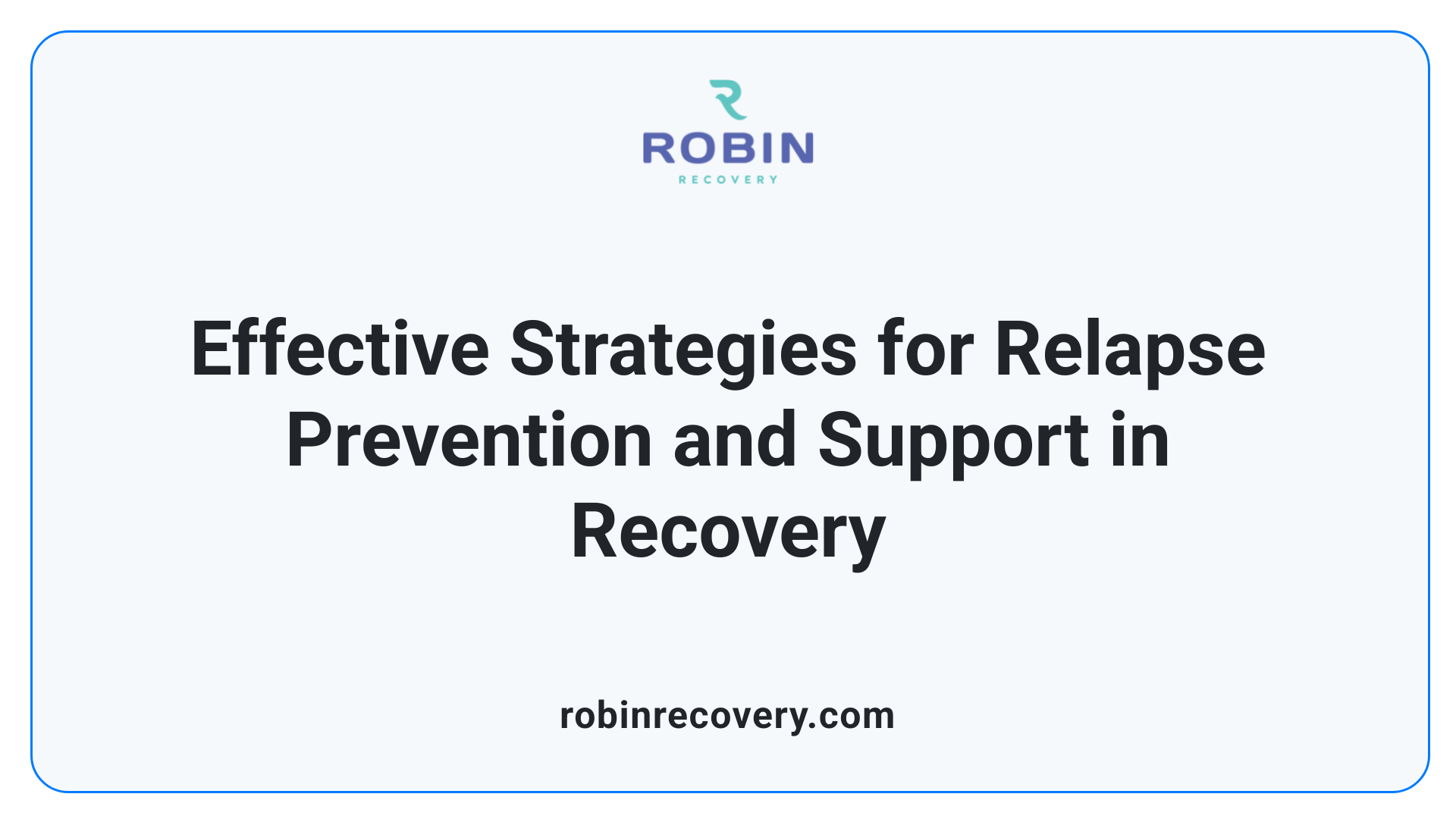The Role of Medications in Preventing Relapse and Cravings

Introduction
As addiction treatment continues to evolve, medications are increasingly recognized as vital components in preventing relapse and managing cravings. This article delves into the intricate role medications play in treating substance use disorders, examining their effectiveness, the mechanisms they employ, and their integration within comprehensive treatment plans. Our goal is to provide an insightful overview for those seeking detailed information on this critical aspect of addiction recovery.
The Multifaceted Role of Addiction Medicine

What is the role of addiction medicine in treating substance use disorders?
Addiction medicine plays a crucial role in treating substance use disorders by focusing on a comprehensive approach to prevention, evaluation, diagnosis, and treatment. This field has gained recognition as a subspecialty by the American Board of Medical Specialties, and it emphasizes the need for specialized knowledge to navigate the complexities of substance-related health conditions.
Recognized specialists in addiction medicine have the clinical expertise required to address various aspects of addiction, including withdrawal management, cravings, and co-occurring mental health disorders. This holistic perspective is essential because addiction is often intertwined with other health issues, necessitating a multidimensional treatment strategy.
What are the benefits of addiction specialists?
The demand for addiction specialists continues to grow, leading to numerous career advancement opportunities and financial incentives. Federal loan repayment programs and other funding initiatives are available to encourage professionals to enter the field. Organizations like the American Society of Addiction Medicine (ASAM) play a pivotal role by offering educational resources and advocacy efforts that enhance the skills of addiction specialists.
In addition, these organizations ensure that practitioners are up-to-date with the latest evidence-based practices, enabling them to develop person-centered treatment plans that effectively address individual needs.
Why is it important to enhance addiction medicine education?
Enhancing addiction medicine education is critical. As substance use disorders increase across various demographics, the need for trained professionals capable of providing effective treatment becomes more urgent. By promoting educational resources and training, the addiction medicine field can better navigate the challenges presented by evolving addiction trends, ensuring that individuals impacted by addiction receive appropriate and timely care.
Ultimately, addiction medicine is fundamental to developing comprehensive treatment strategies that enhance recovery outcomes for individuals battling substance use disorders.
Understanding Drug Cravings and Their Link to Relapse
What are drug cravings and how do they relate to addiction and relapse?
Drug cravings are intense desires to use drugs, making them one of the most challenging aspects of addiction recovery. They can occur even after prolonged periods of abstinence and are often tough to resist. Cravings are connected to the brain's reward system, which alters its response to substances over time, establishing a persistent need for the substance to feel pleasure or relief.
Several factors can trigger cravings, including:
- Environmental Cues: Places, people, or situations associated with past use can spark intense urges.
- Stress or Emotional Distress: Feelings of anxiety, depression, or boredom often exacerbate cravings, pushing individuals toward relapse.
- Social Settings: Gatherings where substance use is prevalent can lead to increased temptation and cravings.
How can individuals manage cravings effectively?
Coping with cravings requires a well-rounded strategy. Mindfulness techniques, such as "urge surfing," can be particularly beneficial. This method involves recognizing cravings as temporary and allowing them to pass without judgment. In addition, here are some effective coping mechanisms:
- Building a Support System: Engaging with friends, family, or support groups can provide necessary encouragement during tough times.
- Distraction Techniques: Many find that physical activities, hobbies, or creative pursuits can divert attention from cravings.
- Avoiding Triggers: Steering clear of known environmental cues can significantly decrease the likelihood of experiencing cravings.
What is the relationship between cravings and relapse?
The interplay between cravings and relapse is crucial in addiction recovery. High levels of cravings increase the risk of relapse as individuals may feel overwhelmed by their desires. Research indicates that approximately 40 to 60% of individuals with addiction may experience relapse, similar to rates for other chronic conditions. Thus, effectively managing cravings is essential for long-term recovery and maintaining sobriety.
Medications for Treating Drug Addiction

What medications are used to treat drug addiction?
Medications for treating drug addiction are tailored to specific substances. For alcohol use disorders, Acamprosate, Disulfiram, and Naltrexone are commonly prescribed:
- Acamprosate: Helps stabilize brain chemistry and reduce cravings post-abstinence. It achieves effectiveness around five days after stopping alcohol.
- Disulfiram (Antabuse): Deterrent that causes unpleasant reactions if alcohol is consumed, thereby promoting abstinence.
- Naltrexone: Reduces cravings for alcohol and is effective in blocking euphoric effects to help maintain sobriety.
In the treatment of opioid use disorder, the primary medications include:
- Buprenorphine: A partial opioid agonist, managing cravings and withdrawal symptoms while supporting recovery.
- Methadone: A full agonist that alleviates withdrawal symptoms effectively but can carry risks of misuse.
- Naltrexone: Also used here to block opioid receptors, helping maintain an opiate-free state.
Additionally, nicotine addiction is commonly addressed with:
- Bupropion: An effective medication that helps prevent nicotine relapse, often combined with nicotine replacement therapies.
- Varenicline: Assists in reducing cravings and withdrawal symptoms associated with quitting smoking.
Mechanisms of action and clinical applications
Each medication targets specific pathways in the brain's reward system:
- Acamprosate stabilizes neurotransmitter levels disrupted by alcohol, reducing cravings.
- Disulfiram leads to adverse effects when alcohol is ingested, reinforcing abstinence.
- Naltrexone, through opioid receptor blockade, diminishes both alcohol and opioid cravings, enabling continued recovery efforts.
- Buprenorphine and Methadone both alleviate withdrawal symptoms but vary in their mechanisms, offering patients options based on their individual needs.
Patient outcomes and side effects
Clinical outcomes suggest that these medications significantly improve retention in recovery programs and reduce relapse rates. For instance:
- Naltrexone's use in alcohol dependence has shown a 78% efficacy rate in reducing cravings and consumption.
- Disulfiram, while effective in deterring alcohol use, requires strong commitment due to potential side effects if alcohol is consumed.
Medications not only aid in managing withdrawal and cravings but also foster better participation in therapy, promoting a comprehensive approach to addiction treatment.
Mechanisms and Efficacy of Anti-craving Medications
How do anti-craving medications work in the brain?
Anti-craving medications interact with the brain's neurotransmitter systems, primarily focusing on regulating cravings and withdrawal symptoms. These drugs adjust the chemical imbalances caused by prolonged substance use, effectively stabilizing mood and reducing the intense urges associated with cravings. For instance, naltrexone works as an opioid antagonist, blocking receptors to diminish the euphoric effects of alcohol and opioids, which helps maintain abstinence and reduces heavy drinking episodes.
What is the effectiveness of specific medications?
Several anti-craving medications have shown remarkable efficacy:
- Naltrexone: Reduces alcohol cravings with a success rate of 78% while also effective for opioid dependence.
- Acamprosate: With a number needed to treat (NNT) of 8, it significantly supports abstinence by stabilizing brain chemicals disrupted by alcohol use.
- Disulfiram: Though effective at deterring drinking through adverse reactions when alcohol is consumed, it does not reduce cravings directly.
What is their role in comprehensive treatment plans?
Anti-craving medications are most effective when combined with comprehensive treatment approaches, including cognitive-behavioral therapy (CBT) and support groups. These medications help individuals engage more actively in therapy and support services, promoting better recovery outcomes. For example, combining naltrexone with psychotherapy can notably decrease the likelihood of relapse, reinforcing the need for an integrated treatment plan to manage addiction successfully.
Integrating Medications with Behavioral Therapies

Benefits of combining medications with therapies
The integration of medications with behavioral therapies in addiction treatment has proven to enhance recovery outcomes significantly. Medication-assisted treatment (MAT) addresses both the physiological and psychological components of addiction. These combined approaches mitigate withdrawal symptoms, curb cravings, and fortify the individual's commitment to recovery.
Examples of effective medication and therapy combinations
Several combinations showcase the impact of this integrative strategy:
- Naltrexone with Cognitive Behavioral Therapy (CBT): This pairing has been shown to effectively reduce cravings for alcohol and opioids, promoting sustained abstinence.
- Acamprosate with supportive counseling: This medication stabilizes brain chemistry disrupted by alcohol, while counseling provides coping strategies essential for long-term recovery.
- Bupropion combined with nicotine replacement therapies: Ideal for those recovering from tobacco addiction, this combination works hand-in-hand to reduce cravings and improve outcomes.
Improving patient outcomes
Studies suggest that utilizing these coherent approaches can lead to improved retention in treatment programs and overall success rates. Medications like naltrexone and acamprosate, when wielded alongside behavioral therapies, have shown that one relapse can be prevented for every five patients treated. A comprehensive strategy reinforces the effectiveness of pharmacological interventions with sustained behavioral support, markedly enhancing the potential for lasting recovery.
Strategies for Maximizing Treatment Success in Addiction Recovery

Relapse Prevention Plans and Coping Strategies
Developing a robust relapse prevention plan is crucial for anyone recovering from addiction. This plan should include coping strategies to handle stress and triggers, which are often the precursors to relapse. Incorporating techniques like mindfulness, regular exercise, and engaging hobbies can help manage cravings effectively. Individuals should also identify potential stressors and establish personalized responses to those cues.
Building Support Networks
A strong support network plays a vital role in recovery. Involvement from family, sober friends, and support communities like Alcoholics Anonymous can provide emotional backing and accountability. Regular communication and interactions within these groups can encourage motivation and reinforce commitment to sobriety.
Importance of Lifestyle Changes in Recovery
Making lifestyle adjustments is fundamental for long-term recovery. Healthy routines, such as maintaining a balanced diet and ensuring adequate sleep, significantly contribute to an individual’s wellbeing. These changes help stabilize mood and reduce cravings, reinforcing a holistic approach necessary for effective recovery.
Conclusion
Medications play a pivotal role in preventing relapse and managing cravings in addiction recovery. When combined with behavioral therapies and comprehensive treatment plans, they significantly enhance the chances of sustained recovery. By understanding the diverse applications and benefits of these medications, individuals and healthcare providers can make informed decisions that lead to more effective treatment outcomes and a greater likelihood of long-term sobriety.
References
- Addiction Relapse Prevention - StatPearls - NCBI Bookshelf
- Treatment and Recovery | National Institute on Drug Abuse (NIDA)
- Anticraving Medications for Relapse Prevention: A Possible New ...
- Medications, Counseling, and Related Conditions - SAMHSA
- What Medications Can Be Prescribed to Prevent Substance Abuse ...
- Preventing Relapse in Prescription Drug Addiction Strategies for ...
- Drug Relapse: Symptoms, Causes, Stages, Treatment, and Prevention
- The Benefits of Anti-Craving Medication for Drug and Alcohol ...
